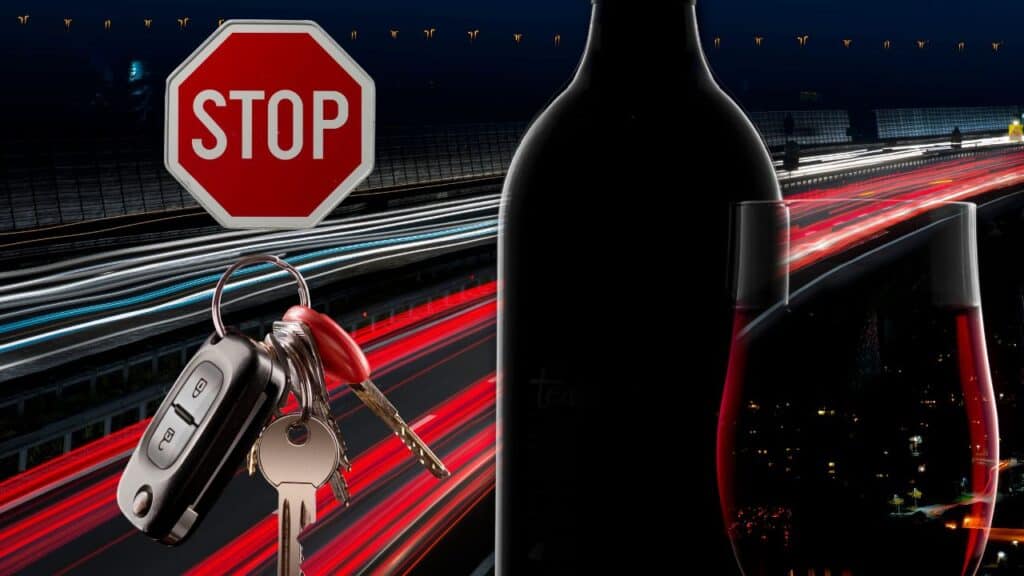According to the Texas Department of Public Safety, nearly 90,000 Texas drivers were pulled over on suspicion of driving while intoxicated in 2021.
Of those cases, nearly 12,000 were convicted of a crime, including more than 8,000 of DWI.
That leaves about 75,000 DWI cases without a conviction.
Many of those drivers either proved they weren’t inebriated or handled the incident properly from the moment they saw the police lights in their rearview mirror.
In this post, we’ll go over the 7 Things You Should Never Do If Stopped for DWI (or any other offense, for that matter).
Of course, you should never try to operate a moving vehicle if intoxicated. In fact, even if you weigh 300 pounds and consumed only one beer in over two hours, it’s not worth the headache, especially in this day and age when we have such easy ride-sharing apps at our fingertips to get us home safely and relatively cheaply.
If you’re facing a DWI offense, it’s important to consult with an experienced criminal defense attorney as soon as possible. The sooner a Varghese Summersett defense team member takes on your case, the better the chances for the most favorable outcome.
7 Things You Should Never Do If Stopped for DWI
Pull Over and Be Polite
Once you see a law enforcement officer pulling you over, put on your blinker to let them know you are complying and pull over at the soonest safe area, preferably off a major road or highway.
Remember, a smile and kindness go a long way. Have your license, registration, and insurance ready.
It will look better if you’re not shuffling through paperwork in the glove compartment or frantically rifling through your car looking for the documents when a law enforcement officer asks to see them.
If you haven’t yet gathered your documents, ask the officer if it’s OK for you to move to grab them. You should move slowly and deliberately.
Don’t act annoyed or defensive to the officer. Be curt but courteous.
Heads up: Remember that in most cases, the entire incident is being caught on video and audio. Being difficult or having an attitude toward the officer will not play well with a jury. If your case ends up in a trial, a video showing you being polite to the officer will make it much easier for the jurors to put themselves in your shoes.
No, You Don’t Know Why You Were Pulled Over
If the officer asks, “Do you know why I pulled you over?” your answer should be no. Don’t guess or assume the officer knows anything. Politely tell the officer, “No, sir (or ma’am).”
This open question by the officer is often a way to get a driver to admit to something, perhaps even something the officer wasn’t aware of. Don’t offer up a reason to arrest you to the officer.
In DWI cases, the state of Texas must show the officer had a good reason for pulling you over in the first place. Don’t give them options by answering, “I was driving too fast” or “I didn’t use my blinker.”
By answering their question this way, you are giving the officer a justifiable reason for stopping you, even if they didn’t realize you were speeding or failed to use your blinker.
7 Things You Should Never Do If Stopped For DWI

Don’t Talk
Besides answering a few rudimentary questions (while being polite), you don’t need to keep talking to the officer. Don’t admit anything or give any kind of statement to the police and politely decline to answer questions. If the officer asks you how much you’ve had to drink or the time of your last drink, DO NOT answer these questions.
Never admit to consuming alcohol. The officer is likely to use anything you say in their retrograde extrapolation calculation. For instance, if you think telling an officer that you had a drink or two more than an hour ago, that information will be used by police to determine your blood-alcohol concentration, or BAC, at the time you are pulled over based on other known factors.
No one has ever explained their way out of a DWI arrest. You probably aren’t as convincing as you think, and that’s especially true if you’ve been drinking and are slurring your speech, stumbling, or swaying in front of the police.
Lastly, most people aren’t exactly about when they last had a drink, which can inaccurately make them seem more intoxicated through retrograde extrapolation.
Don’t Get Out of Your Vehicle
Don’t get out of your car unless law enforcement requests that you do so. Getting out and moving around is, in a way, your body language talking to the officer. They will be watching your movements, your gate, and how stable you are. Remember, we said DON’T TALK. That goes for body language, too. Stay put, stay still, unless the officer asks you to step out.
If you have alcohol on your breath, it’s better not to be face-to-face with an officer. That’s another reason to keep your mouth shut and say next to nothing because they will be looking to detect any smell of alcohol.
Decline all Field Sobriety, Blood, or Chemical Tests
You are required to step out of the vehicle if asked by the police. However, you are not required to submit to any roadside sobriety test. In fact, politely decline to perform any tests, give blood or submit to chemical tests. Even if you’re sure you’re sober, don’t volunteer to give a specimen of blood or perform a breath test.
Never. Ever.
Why? There are several reasons. These tests can be unreliable and inaccurate. A driver with an outrageous BAC might pass while a sober person might fail. Field sobriety tests aren’t required by law.
Take note: If you refuse a breathalyzer test, you could be convicted of driving under the influence, which could result in serious penalties. However, a skilled DWI defense lawyer will look for ways to invalidate the breathalyzer results.
Also, be advised: Refusing to submit to an indirect chemical test (urine or breath) or direct chemical test (blood) could result in a year-long administrative license suspension.
Refusing the tests doesn’t mean you will be convicted of DUI, but in most cases, you will have to serve the license suspension, pay additional fines, and install an interlock device on your car, among other potential penalties.
Under Texas’ implied consent laws, if you refuse to submit to such BACs, you are subject to a license suspension under the Administrative License Revocation program. You will also face a suspension for submitting and failing the test. In either case, your lawyer can help you fight a pending suspension.
If you refuse the test, the officer could attempt to obtain a warrant, allowing him or her to forcibly draw your blood for testing, but getting a warrant takes time, which could be a factor in challenging the test results.
Remember, you could be arrested after refusing BACs. However, the other evidence law enforcement may be relying on to arrest you could be challenged by an adept North Texas DWI defense lawyer.
Invoke Your Right to Remain Silent
Remember, we all have Miranda rights. If you have been placed in handcuffs, you must ask the officer to read your Miranda rights before they say anything else to you.
Before you’re in the custody of law enforcement, your statements are admissible in court. That’s why it’s essential that you are properly read your Miranda rights.
Your fifth amendment right only becomes relevant after law enforcement has read the Miranda warning to you.
Call Varghese Summersett ASAP
If you didn’t follow these 7 Things You Should Never Do If Stopped For DWI, all is not lost.
If you are facing DWI charges in North Texas, it’s imperative to consult with a dependable law firm with a track record of success.
Varghese Summersett provides unmatched service and results for its clients with a team of Board Certified criminal defense attorneys and former prosecutors with half a century of combined experience in Texas courtrooms.
For a free consultation, call us at 817-203-2220.


